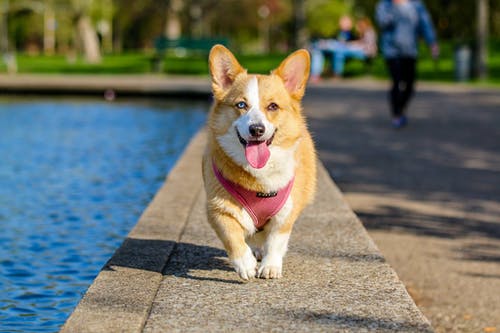How Often Should I Take My Senior Pet to the Vet?
As your faithful companion embarks on the journey through their golden years, their medical needs change. Elderly pets require unique care to ensure they maintain the best quality of life. Therefore, how often should I take my senior pet to the vet? Worry not, as we delve into this topic, covering various aspects like common geriatric illnesses, pet pain management, the benefits of geriatric vet services, vet geriatrics, and vet surgery.
Senior Pet Care
Caring for an older pet calls for attentiveness to any changes and maintaining regular veterinarian check-ups. This is even more critical if you’re dealing with pets that have entered their geriatric phase.
- Routine Visits: Unlike younger pets that typically require annual vet visits, senior pets often need to be seen two to four times a year.
- Watchful Eyes: Be attentive to any changes related to their habits such as eating, activity levels, and toilet routines. These changes could indicate a health concern.
- Preventive Measures: Continue your pet’s vaccinations, parasite prevention, and oral health checks into their senior years. This serves to prevent and identify health issues early.
Common Senior Pet Health Changes
Just as humans have health changes as they age, so do our pets. These changes may happen slowly, and the signs may not be immediately apparent until significant progress is made.
- Arthritis: Chronic joint inflammation can cause discomfort or limit mobility. This often-witnessed condition is common but manageable in many pets.
- Hip Dysplasia: A degenerative condition that affects the hip joints; this can cause persistent pain and limit physical activity.
- Aging Conditions: Diseases such as diabetes, heart disease, and kidney issues are more common in geriatric pets.
The Importance of Pain Management in Pets
Old age often brings with it discomfort or chronic pain. Recognizing and managing pain is a crucial part of caring for a senior pet.
- Chronic Conditions: Joint supplements, prescription medications, and dietary changes may help control the symptoms of arthritis.
- Post-operation Pain: After surgery or other medical procedures, ensuring your pet is comfortable is key to a speedy recovery.
- Nutritional Guidance: As pets age, their dietary needs change. Consulting with your vet for nutritional counseling for pets can help you ensure your pet has the proper diet.
Vet Services
Aging pets need special care and attention to ensure their health and longevity. One way to do this is by considering geriatric vet services, which often involve physical rehabilitation.
- Rehabilitative Therapy: Techniques such as underwater treadmill therapy and hydrotherapy for pets can increase flexibility and improve circulation, thereby enhancing pet mobility.
- Home Rehabilitative Care: Your vet may recommend simple exercises or changes in your home routine to aid your pet’s recovery and enhance mobility.
- Regularly Scheduled Check-ups: Regular exams can catch health problems early, thereby improving the efficacy of treatment and potentially prolonging your pet’s life.
Vet Geriatrics
Vet geriatrics specializes in the treatment and prevention of diseases in older pets. In places like animal surgery in Stroudsburg, PA, there have been many advancements in the field of geriatric pet care.
- Veterinary Surgery: For many senior pets, surgical intervention may be necessary to address certain health issues. Pain management and strict adherence to recovery guidelines are critical following any vet surgery.
- Holistic Interventions: Along with traditional medicine, treatments like acupuncture, chiropractic care, and massage therapy for pets are becoming increasingly popular to provide holistic care.
- Expert Practices: Vet practices that offer an array of services, including geriatric pet rehabilitation, offer an integrative care approach, catering to a senior pet’s diverse needs.
Veterinary Surgery
In some situations, surgical intervention is the most effective course of action. Thanks to the animal rehab specialists, pets undergoing surgery have numerous options for aiding their recovery.
- Rehabilitation: Following surgery, physical therapy for pets as well as PROM (Passive Range of Motion) exercises can dramatically assist recovery.
- Postoperative Care: Proper wound care, adequate pain management, and attentiveness to recovery protocols, including vet surgery recovery plans, are key elements to bear in mind.
- Medical Advancements: With the continuous advancements in vet medicine, the prognosis for pets undergoing surgery is better than ever before.
To End
In conclusion, the frequency of vet visits for your senior pet should depend on its breed, health status, and age. Regular check-ups, home observations, and preventive measures can significantly contribute to your pet’s longevity and overall wellbeing. Remember, by helping them in their golden years, you get to repay them for the joy, love, and companionship they brought into your life.








